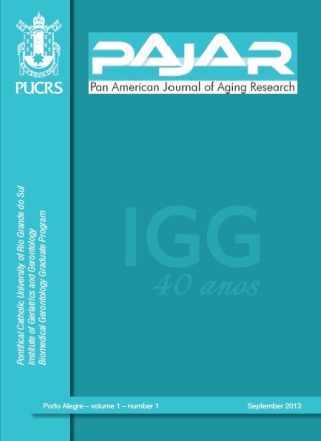The multidimensional study of the elderly in the family health strategy in Porto Alegre, Brazil (EMI-SUS)
Keywords:
Aging Elderly Epidemiology Family medicine Geriatrics Gerontology Methodology Public HealthAbstract
Population aging is a global phenomenon never experienced before, which will cause major repercussions for the health area. This paper’s main objective is to describe the methods employed in a transversal epidemiological study with a target sample of 1080 elderly people, randomly selected from the Family Health Strategy in Porto Alegre (RS/Brazil). It integrates three key dimensions: epidemiological, clinical and basic sciences. A sub-sample with changes in cognition or mood make up a longitudinal study. The relevance of this work rests primarily on the synergy between research and care; aiming to improve health care for the elderly and making better use of the Brazilian National Health Service structure. In this way, there is a combination of robust methodological tools capable of accurately observing the epidemiological phenomena, associated with research in the areas of basic and multidisciplinary sciences. Research initiatives like this can bring forth benefits to a large proportion of the population who depend on the public health structure.
Downloads
Downloads
How to Cite
Issue
Section
License
Copyright
The submission of originals to PAJAR implies the transfer by the authors of the right for publication. Authors retain copyright and grant the journal right of first publication. If the authors wish to include the same data into another publication, they must cite PAJAR as the site of original publication.
Creative Commons License
Except where otherwise specified, material published in this journal is licensed under a Creative Commons Attribution 4.0 International license, which allows unrestricted use, distribution and reproduction in any medium, provided the original publication is correctly cited.






